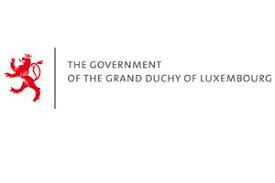| TERM | DEFINITION |
|---|---|
| Established procedures and rules | Formal directions or regulations relating to the authority and responsibility for taking such action, the methods to be used for transfer or disposal, recording or publication of the results. These are considered to be established when the procedures and rules are formally recorded in laws, regulations or directions from appropriate authorities. |
| Expenditure payment arrears | Expenditure obligations that have been incurred by government, for which payment to the employee, retiree, supplier, contractor or loan creditor is overdue. The PEFA framework allows local definitions and local practices in the calculation of payment arrears. The definition must be included in the report. |
| Explicit contingent liabilities |
As per IMF’s GFS Manual 2014, legal or contractual financial arrangements that give rise to conditional requirements to make payments of economic value. The requirements become effective if one or more stipulated conditions arise. Examples: (i) umbrella state guarantees for various types of loans—for example, mortgage loans, student loans, agriculture loans, and small business loans; (ii) state insurance schemes, such as deposit insurance, private pension fund insurance, and crop insurance; (iii) financial implications of ongoing litigation and court cases, although often difficult to quantify; and (iv) state guarantees for nonsovereign borrowing by private sector enterprises and guarantees on private investments of different types, including special financing instruments such as PPPs. |
| Extrabudgetary | See extrabudgetary units |
| Extrabudgetary units | As per IMF’s GFS Manual 2014, entities with individual budgets not fully covered by the main budget. These entities are separate units that operate under the authority or control of a central government (or in the case of an SNG assessment the state, or local government). They may have their own revenue sources, which may be supplemented by grants (transfers) from the general budget or from other sources. Even though their budgets may be subject to approval by the legislature, similar to that of budgetary units, extrabudgetary units have discretion over the volume and composition of their spending. Such entities may be established to carry out specific government functions, such as road construction, or the nonmarket production of health or education services. Budgetary arrangements vary widely across countries, and various terms are used to describe these entities, but they are often referred to as extrabudgetary funds or ‘decentralized agencies’ (ref GFS Manual 2014, Ch 2, s2.82). |
| Fair (or market) value | Amount at which an asset could be exchanged between willing parties at the current time. |
PEFA Handbook Volume 1: The PEFA Assessment Process – Planning, Managing and Using PEFA





